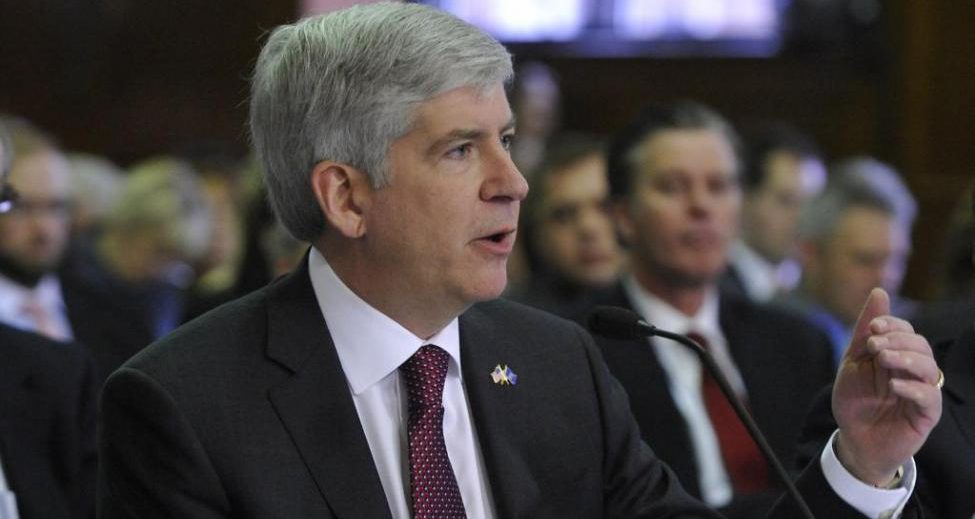Michigan very quickly went from being the latest state to introduce regulated sports wagering to become yet another contender somewhere down the line as late as 2020 thanks to Governor Rick Snyder’s shock decision to veto Bill 4926 last week. Snyder was the ultimate arbiter of the pending legislation which would have made provisions for terrestrial and online sports betting in the state.
And yes it was a shock decision. It left potential stakeholders perplexed and disappointed while journalists and industry observers could be forgiven for wondering how they might have neglected to spot Snyder’s blackball rolling into play at the last minute.
Republican Brandt Iden, the sponsor of 4926, was understandably aggrieved that a bill of four years in the making was stopped dead in its tracks as a result of what he cited as a ploy by the Governor to monopolize revenue via the official state lottery. Had someone from the lottery been in Snyder’s ear about possible cannibalization of revenue? It’s entirely possible.
The Michigan veto teaches us a couple of key lessons. Firstly, where gambling legislation is concerned there is never really any such thing as a dead cert, however we might like to think otherwise. Secondly, we underestimate the importance and power of the lottery organizations at our peril. They have the potential to play a huge part in US sports betting, whether that’s through providing the platform from which sportsbooks can be operated or attempting to halt their progress (allegedly).
By way of illustration, its worth having a glance at the situation regarding the lottery in the UK and the power it wields there. Stakeholders in the British gambling sector already have plenty of experience of what it’s actually like to operate in a so-called free market where the country’s biggest gambling product, the National Lottery, has been bubble-wrapped and ring-fenced for what many might say has been far too long.
In the UK you can theoretically wager the contents of your bank account on National Lottery scratchcards and Lotto tickets at the age of 16, but you can’t play a ‘grown up’ slot machine or place a bet with a bookmaker until you’re 18. Neither can you enter a casino or bingo hall until you’ve blown out 18 candles on your cake!
This insulation from free market forces is all because a vast proportion of the money from the lottery ostensibly goes to fund good causes as well as keeping lottery executives well paid. In that context, it’s perhaps easy to understand why Michigan’s state lottery, with its own website offering online gaming, might want to curtail online gaming being offered by anyone else.
Citing the UK experience again, there’s no hiding the fact that a broadening of gambling opportunities allied to a doubtful economy did have an impact on lottery revenue; another reason why Michigan’s bean counters might be accused of nervousness about online gaming.
But operator Camelot’s last set of results for the 2017/18 financial year painted a healthier picture. It took £6,951.7m during the period – an increase of £26.4m on the previous year. That return to growth was achieved through a far-reaching strategic review and a soaring performance in digital sales. Queering the pitch by eradicating any competition was not an option.
For the time being at least, we can only sit and contemplate Snyder’s rationale behind stopping the passage of 4926. Was it an altruistic act designed to prevent a gambling epidemic or, as Iden suggests, a means of protecting state lottery receipts? Either way, the harsh fact of life for aspiring online gaming stakeholders is that they will have to wait for at least another year before a Michigan bill gets a look-in.
That online gaming is apparently an inevitability in the Wolverine State will be scant consolation given the ground that will be lost to other states during those 12 months. And judging by what’s happened in those states that have gone legal and are up and running, it also amounts to a lot of lost tax. Figure that one out!














